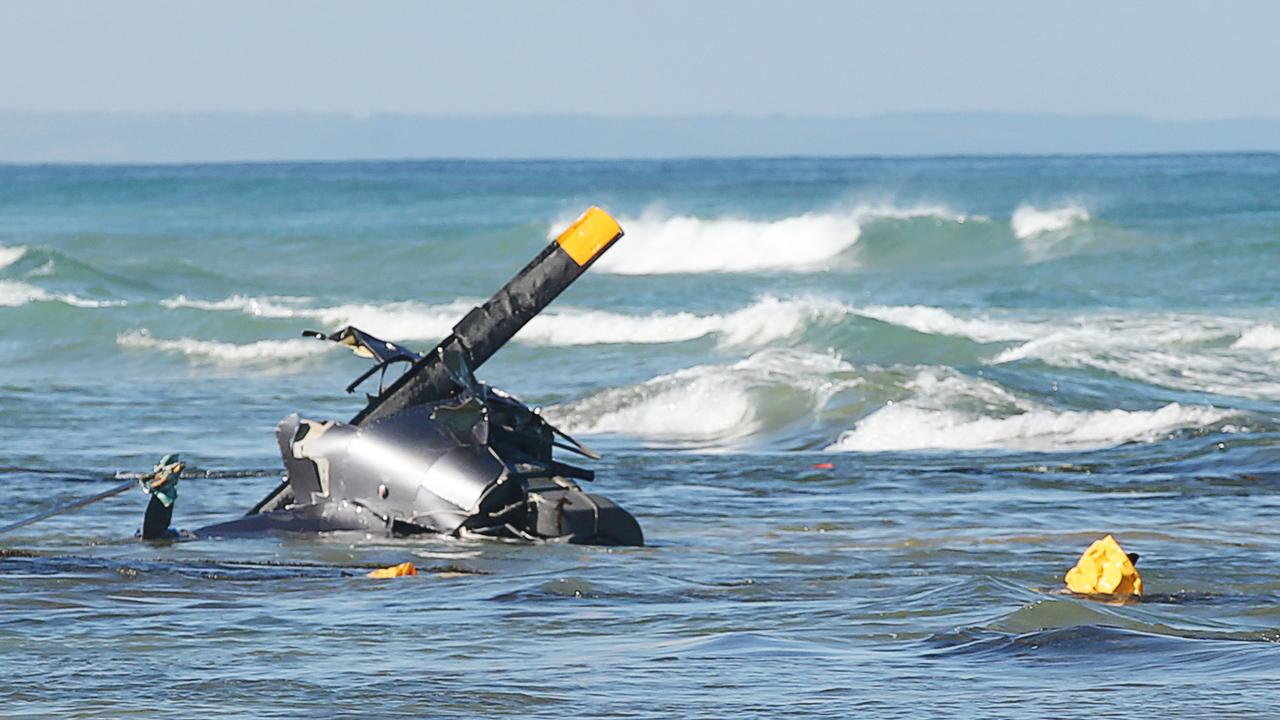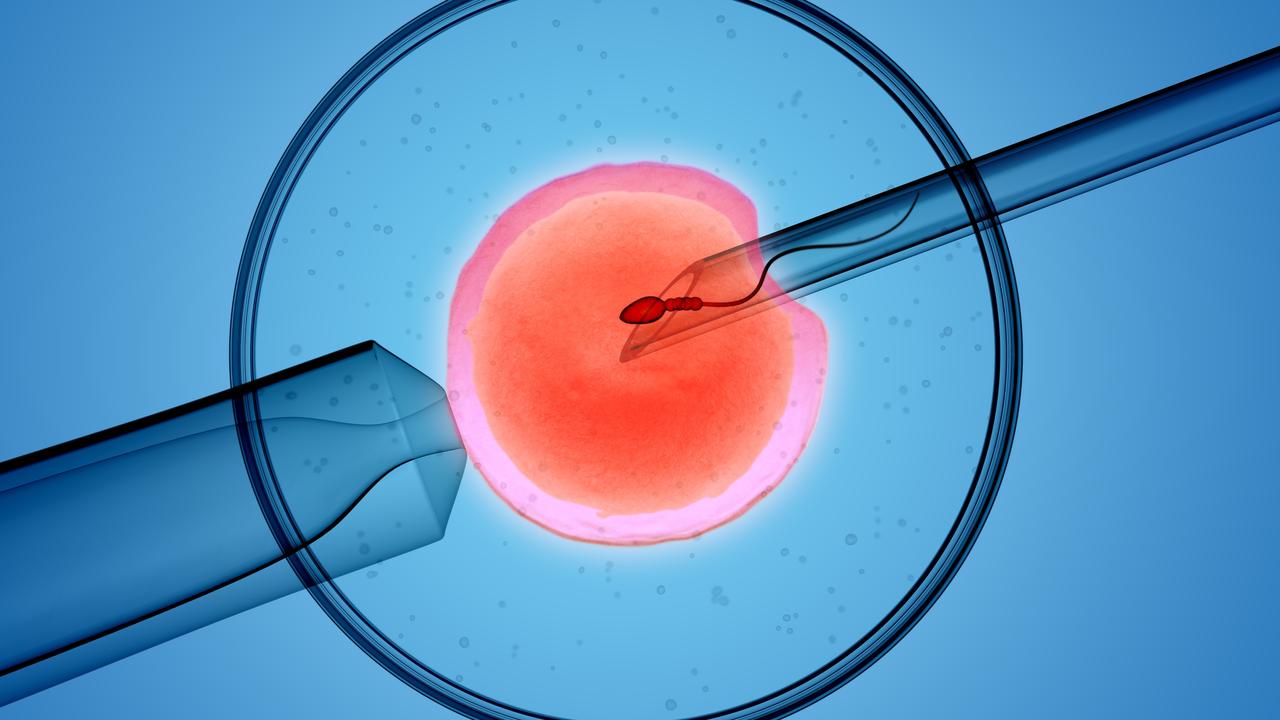Anita Frawley set herself a simple goal to deal with the grief of losing her husband, Danny
Anita Frawley learnt her AFL legend husband Danny was dead from the news. Confirmation landed her in hospital with broken heart syndrome, such was her shock and grief. This is her story.
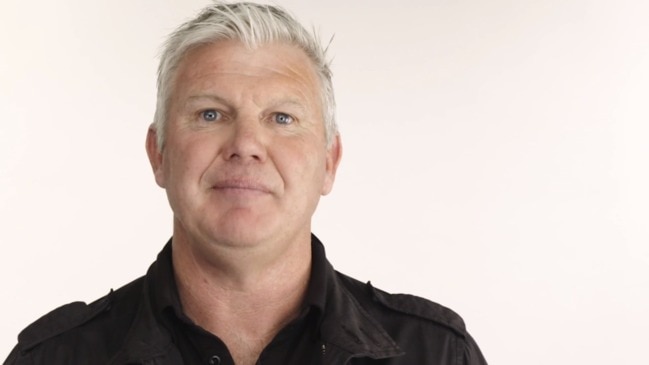
Victoria
Don't miss out on the headlines from Victoria. Followed categories will be added to My News.
Anita Frawley was my first boss. She has become a great friend. She introduced me to her husband Danny, and they both became a huge supporters and a source of guidance for me in a new town as I was finding my feet.
Through the Let’s Talk Series, presented by AIA, we spoke about the loss of Danny through depression, the learnings, the future, and the role she plays in ensuring the Danny Frawley Centre remains a legacy to Danny, and being a source of help for others.
HM: Nites – when did you first think to yourself that Danny might have depression?
AF: I think the years after Richmond, a couple of years after that. He was CEO of the Coaches Association, and he was sort of out of his depth. And then the Essendon saga hit him like a freight train, and I just noticed signs.
HM: Like?
AF: He just became frantic, at the gym twice a day, more than what he ever was prior, and just wasn’t coping as well with the day to day. I didn’t recognise or know it was a sign of depression, I just thought he’d become selfish. I thought “What’s going on with him?”
HM: When was he diagnosed?
AF: There was a stage where he didn’t sleep for three weeks, so I rang the doctor on a Sunday morning and said, “I don’t know what I’m going to do with him, he’s not sleeping and he’s not himself”. So he came over on the Sunday and he said, “I think he’s got depression.” And it just hit me like, “What? Danny has depression?”.
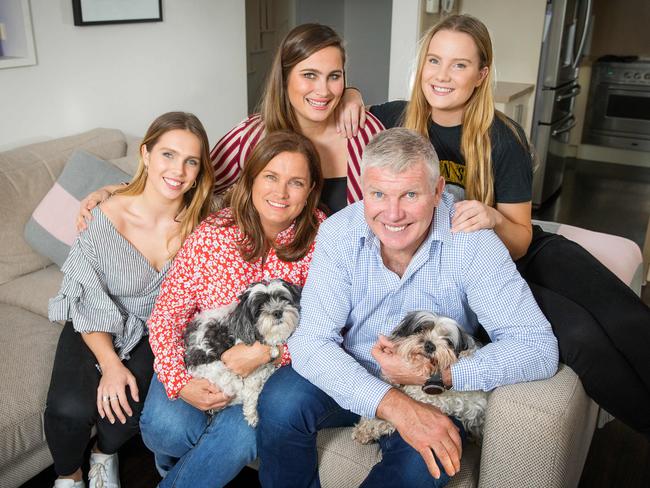
HM: Hard to pick?
AF: Like it’s Danny, you know him Hame, he was the happiest bloke you’d ever come across. He just lived life to the fullest, and loved every moment of it. So it really shook him, and it really, really shook the girls. So I took him to the psychiatrist the next day and it took the psychiatrist a couple of weeks to get his meds right. He was taking two Stillnox tablets and it still wasn’t knocking him out. Then he just became obsessed with sleep, “I’m not sleeping, I’m not sleeping, and I’m going to crash and I’m going to burn.”
HM: I remember him becoming panicky at times.
AF: Absolutely he did Hame. I didn’t realise they were the signs, and neither did he, we just thought it was something else. He was just all over the shop. It was almost like he had ADHD, which he probably did have a little bit anyway, but he was just over the top manic on everything.
HM: Were there fluctuations? Was he happy and then flat or was he just scattered?
AF: He hadn’t hit rock bottom at that early stage, but when he did hit rock bottom, there was no up, it was just rock bottom.
HM: What does rock bottom look like?
AF: Not getting out of bed, not wanting to do any of the things that he normally does, he just wanted to be with his family, the girls and I and sort of closed himself off to the outside world.
HM: He became reclusive?
AF: Very reclusive, he didn’t want to see anyone. He was set to meet his mates for a bike ride every morning, Mark Foley and the boys, and he would tell them “Yeah, I’ll come.” Then he wouldn’t turn up, and that just was not Danny. He’d never let anyone down. It was really sad to see.
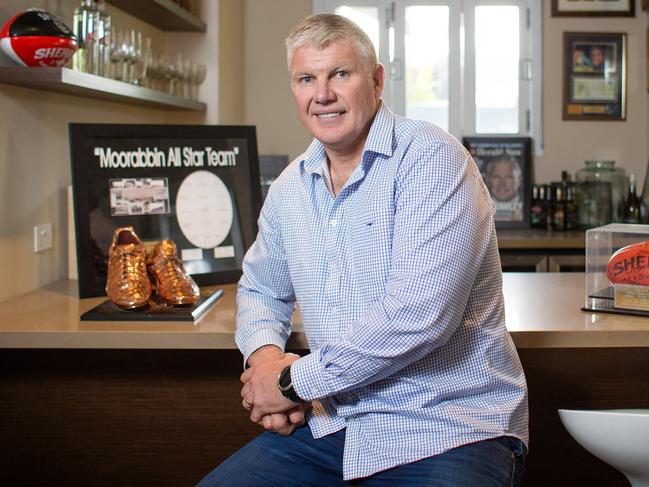
HM: He had time off work?
AF: That was the incredible part. He had the first three or four months off work, and then the doctors and the psychiatrist said that it was probably time for Danny to get back and try and do a little bit of work. He could flick that switch and bang.
HM: He’d walk into the Bounce studio, like nothing was wrong.
AF: I’d be sitting there holding my breath thinking, “Is he going to collapse?” I just felt this anxiety for him, because that was his place he loved, and at work he was presenting as this happy go lucky guy, and I just knew he wasn’t. Then he’d get in the car, come home and go straight to bed, and was just absolutely washed out. He wanted to try and do it for a little bit, but it was just too much for him. He did it for a while and then we spoke with Craig Kelly (his manager) and we just changed things around for him a little bit. It was just incredible the power of his mind to be able to switch it on when he needed to.
HM: Do you – do any of us – have any insight as to what brings depression and anxiety on?
AF: I’m not sure there is anything definitive. The disappointment of being let go by Richmond, the pressure of the whole Essendon scenario when he was the man in charge of the coaches. I think the combination of all of them, including the CTE, was catastrophic for him.
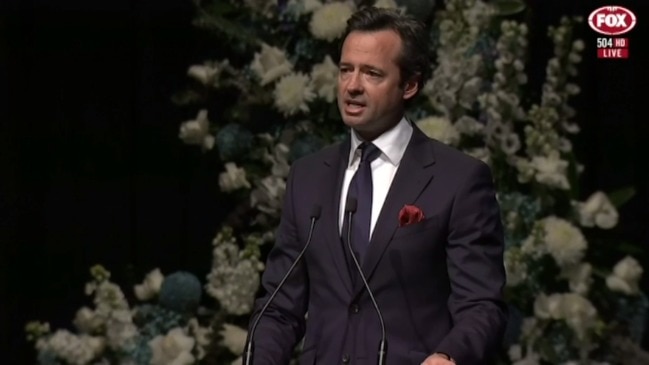
HM: So when you went and saw the doctor and he said depression, was Danny at the stage where he was almost relieved and accepted it as it gave him an answer as to why he’d been feeling like he had?
AF: I think it gave him a couple of answers to why he wasn’t sleeping. One Saturday night after working on SEN, he was just really manic. I said, “Just take the dogs for a walk down to the beach while I get dinner ready and just try and calm down.” So he took the dogs to the beach and he came home howling, just sobbing. I said, “What happened? Did one of the dogs get run over?” and he said, “I lost Chippy down at the beach.” Chippy was a little white poodle and he was just so distressed. I said, “Dan, he’s a little dog, he’ll be fine, he’ll probably know how to come home.” I just knew he wasn’t right – he was just so emotionally just rung out. Danny said “I just couldn’t stand it if I lost him”. I said, “We need to get you some help, this is not normal.”
HM: I remember him telling me that he’d been doing radio on a Saturday or a Sunday, and he was in his car in the MCG in tears not knowing how to get home.
AF: I think that’s the combination of the CTE as well and the depression. He’d just get into this panic. It was like a panic attack, “What do I do? I can’t take a step forward and I can’t go back’’. He’d ring and we’d just talk through it and get him home.
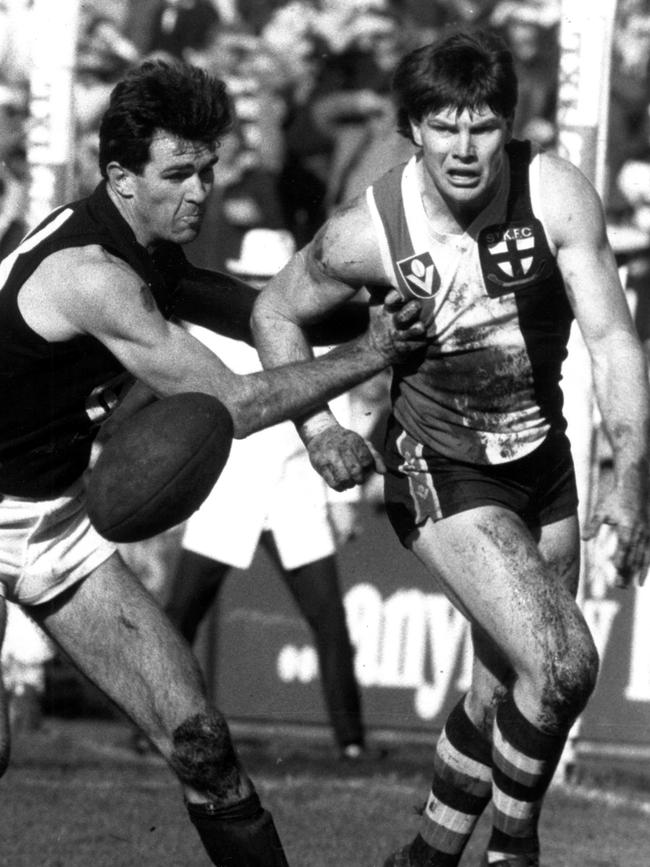
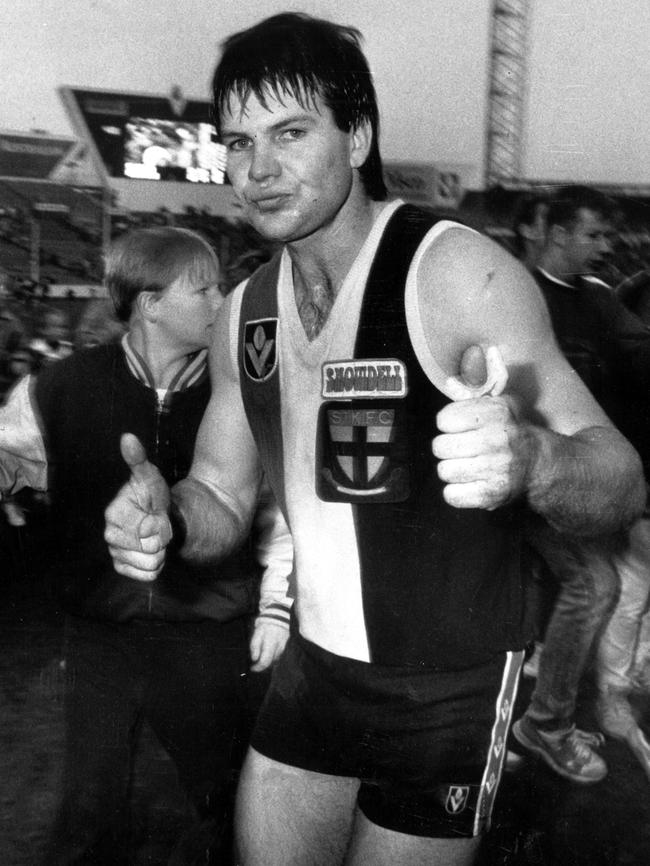
HM: Did you think he would get – with medication and help – a sense of control back?
AF: In November 2018, he was the best he’d been in ages when he was on his meds. There were two reasons why he was in control. His meds, and secondly he was seeing his psychiatrist Brendan, probably every two weeks and he was like his moral compass, his guiding light, he was wonderful with him. I used to go to the appointments earlier on with him because Danny would say, “I’m fine mate, I’m fine.” And I’d go, “No, he is not, he’s not fine.”
HM: What did Brendan think?
AF: He knew he wasn’t fine and he wasn’t being honest. He said, “Danny, you’ve got to tell me the truth.” But Danny, being that old school male was like, “I’m fine, I’ll be all right.” Brendan would say, “What is he really doing? Is he getting out of bed going bike riding?” “No, he’s not”. “Is he going and doing this?” “No”. “Is he lying in bed all day?”
HM: Hiding things?
AF: Yes. He would just say, “No, I’m good, I’m good.” He stayed on his meds, he took a long while to get them right. By seeing Brendan he was tempered, I would say, and that’s what meds do, they keep you on that tempered line. It stopped a lot of the impulsiveness too, which I also find interesting with CTE, it stopped a lot of his wild behaviours, stupid stuff.
HM: But then ….
AF: Unbeknown to me that by January or the February he decided he would go off them. I noticed he didn’t have his big pill bag, you should have seen it, it was a plastic bag full of pills!
HM: Is that in 2019?
AF: Yeah, I said, “You’re not taking your meds Dan.” He said, “No, I’ve spoken to Brendan, it’s all good.”
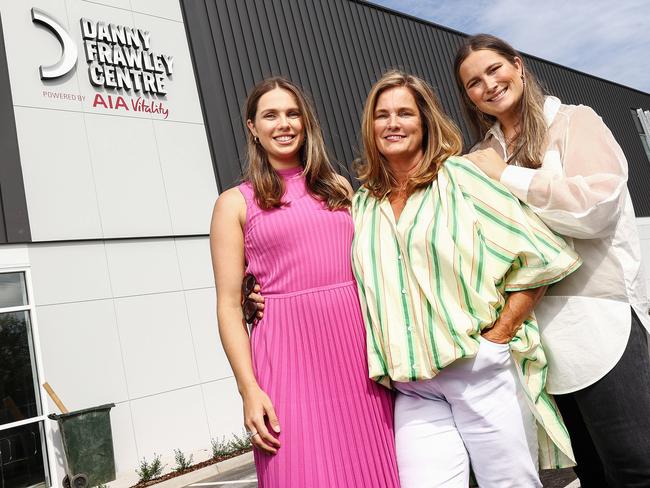
HM: Which he hadn’t?
AF: Well, they’d discussed it and Brendan said, “If we’re going to go off them, it’ll be a very gradual thing, and it’ll have to be under my control.” I think that was the way it was said, and Brendan would be monitoring it all the way through.
HM: But ….
AF: Danny said “I’m not going to see Brendan and I’m going to just throw the pills out the door.” And that’s exactly what he did. So by the May, June, there were just signs again.
HM: You could feel it bubbling?
AF: Absolutely. But I didn’t think he was anywhere near doing what he did. I think it was the CTE (Chronic Traumatic Encephalopathy) that kicked in more too by this stage, with the depression and the anxiety and everything else.
HM: Was he aware of how bad it was getting?
AF: He knew there was something wrong with his brain. We looked at an article in the Herald Sun and it was on the Sports Brain Bank. And I’ve said, “Oh my God, Danny, you need to read this. I think this is you. This is you, these are the symptoms you’re displaying,” I thought he would get him back on the meds. He read it and said, “I’ll ring about it.” He just knew that there was something wrong that wasn’t right with his brain. The depression, the anxiety, the whole thing was just exploding around him.
HM: This is June, July and it was simmering away. Did you think there was any chance that it would end up where it ended up?
AF: No, because I thought five years earlier was the high risk period when he completely broke down. We’d learned a lot, the girls and I, the questions to ask, and this is why I want the awareness to get out, to get out and to ensure you all talk to people.
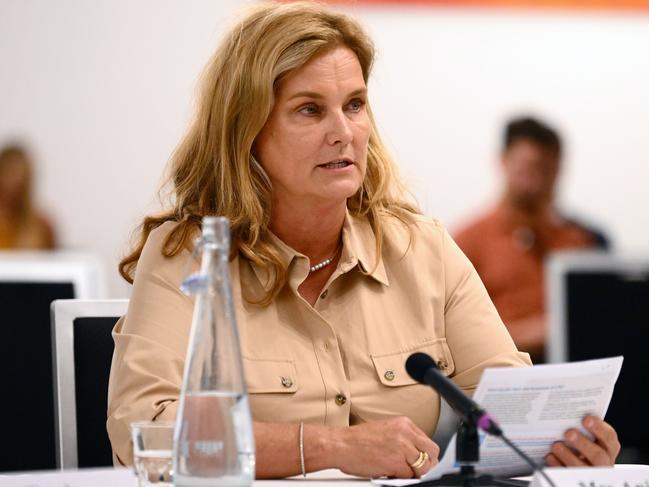
HM: Talk.
AF: For the families, there’s so many things you can ask to help those that you think could be suicidal or depressed. So we asked the questions and that was the thing with Danny, he gave us the answers that he knew we wanted to hear, and that’s why we didn’t think he was anywhere close to doing anything silly. But it was also his impulsivity in the end that worried me. Just that morning …. bang.
HM: How did you hear about it?
AF: Probably similar to you Hame. I was at (sports marketing agency) TLA with a friend of mine and Ned was in the office (Craig Kelly). Chelsea rang me, and she had got a call that Channel 10 had put up that there’d been a car accident and Danny was in it. So she said, “I’m coming to TLA mum.” So Chelsea came to TLA and then I said, “You’ve got to get Danielle”. We just could not get any information. Ned was ringing people – running around trying to protect and look after us. I just had this feeling, this sinking feeling. Ned rang Gil and said, “Mate, can we get someone to ring her?”
HM: No one had called you?
AF: The police had been home, but I was at work. So the Police Commissioner rang me and told me when I was in the TLA offices. Then we had the decision to make on whether to ring Keeley who was in America in the middle of the night. Two of the girls were with me, but Keeley had just gone back to America to play college basketball.
HM: First year of University over there?
AF: Yeah, first year. I rang Skylar, the coach over there and I said, “I’m just in a dilemma, I don’t know what to do.” Because it was already popping up on social media, we discussed it and he said, “I think you need to tell her.”
HM: How did that phone call go?
AF: You can’t believe it’s one you have to make. After I made the phone call, I got in the car with Gus (Angust Brayshaw) and I said, “I’ve just got this pain, this shock pain, is this heartbreak? What is this, what is it about?” It just was gruelling.
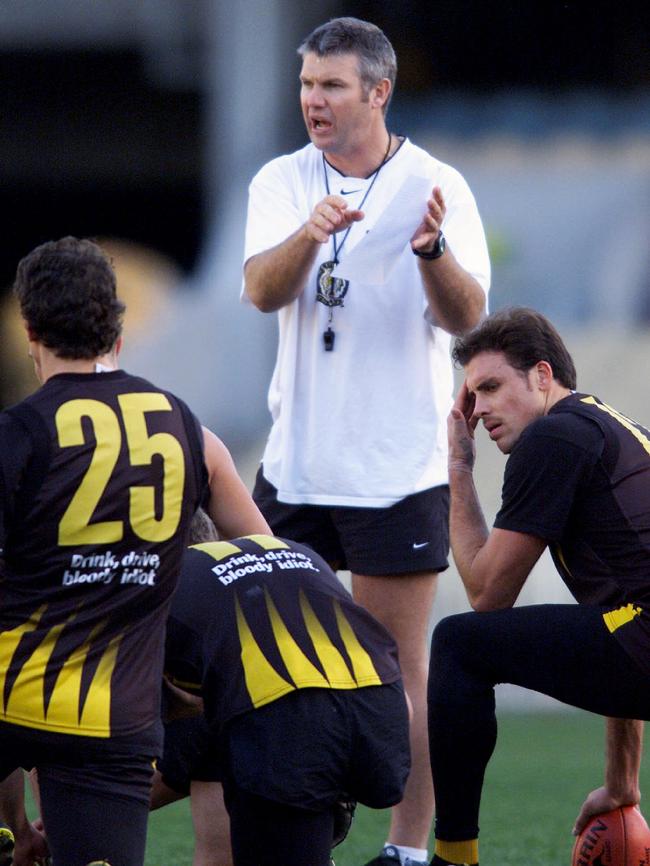
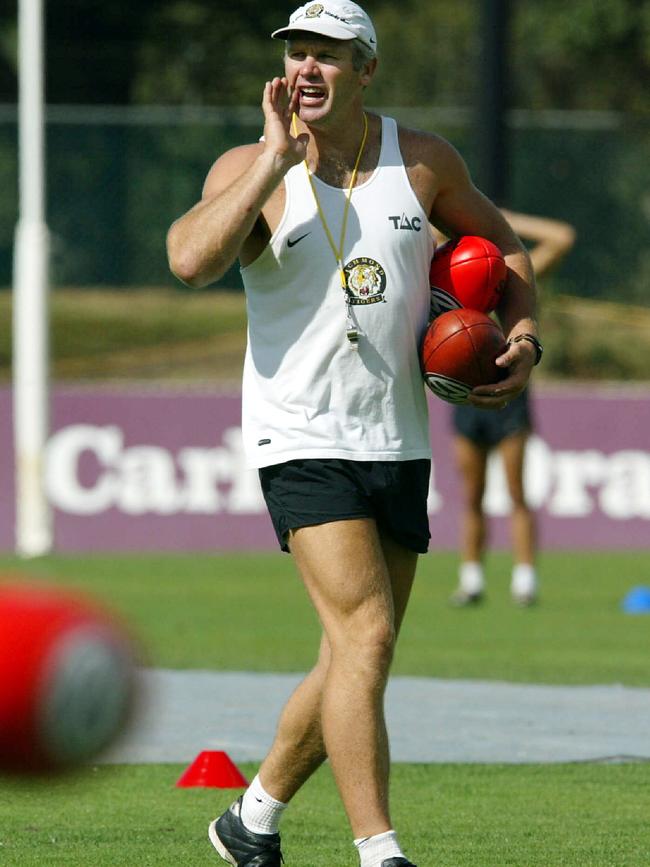
HM: What was it?
AF: I found out an hour and a half later, two hours later, that I’d had a heart attack called takotsubo – broken heart syndrome. So I went to hospital in the ambulance with Chelsea and Danielle, with me. I just remember thinking “Please, they can’t lose their mum and their dad on the same day, this just can’t happen.”
HM: A heartbroken mother.
AF: That was on Valium, and just completely wiped out. The resilience of the human … you just have to get through it. I think the thing that surprised me is if you get the help – I mean we were so fortunate, we had great help with psychologists and we had the time together, you can get through it. Luckily we had the ability to be together, and talk through it. We had a great network of friends and family that were there for us. Hame you came over and you saw what we were like and having people around you, I don’t even remember the first 12 months, it was just a blur, an absolute nightmare. But I can just remember thinking in 12 months time, I think I’ll be all right. I’ll be better than I am today, I know I’ll be better than I’m today. That got me through. And I knew I had to be there for my girls.
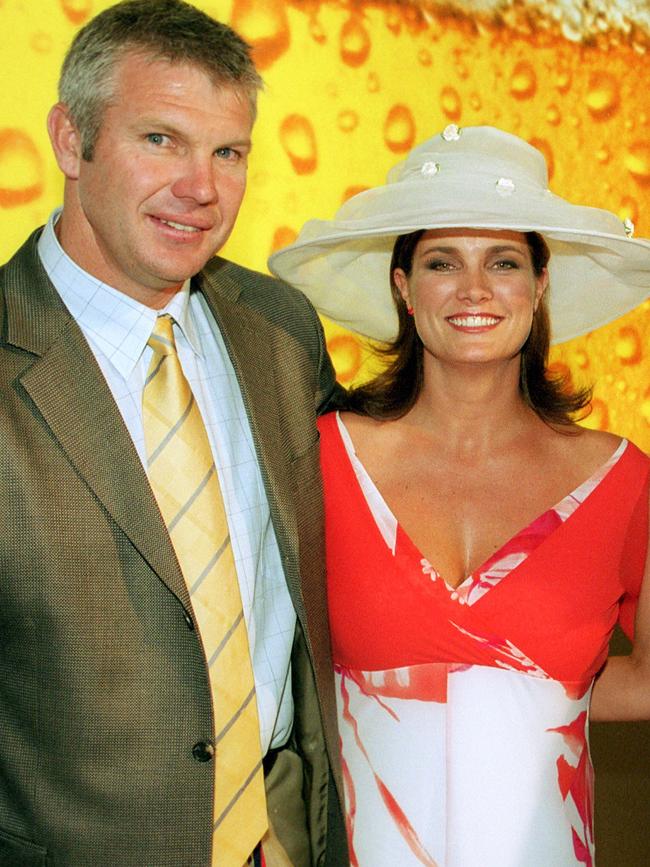
HM: Has time helped?
AF: Yeah, time helps. I think that’s what I want people to understand, that if you can get the help, if you can have good people around you to help you, you can get through it. You just need that time, grief just takes time, it’s got its process.
HM: What has helped?
AF: You get through days, and you become a far more empathetic person. I’ve found an ability to fight for things I want to fight for – otherwise why the hell would I be doing this? I want the Danny Frawley Centre to mean something, and I want to see change with CTE, that’s my mission. I want to make change, and I’m going to do it so I don’t see others go through what we have been through.
HM: I remember being in disbelief before the funeral at your house – how strong your girls were.
AF: Yeah, they just blew me away, they were incredible. I don’t know how they did it, but they did. You look at their life journey since, and Chelsea’s gone from the media and now she’s at the Danny Frawley Centre as the partnership manager, she’s so passionate about it. Every day she walks in and sees that big mural of Danny on the wall, and I just take my hat off to her. It’s her dad, the man she loved more than anyone. Then Danielle was doing media communication, she was doing a great job and she just said, “I don’t want to do this mum, I want to make a difference, I want to do psychology.” I said, “Do it. If that’s what you want to do, if you want to help people do it, make a difference.” So she’s now into her Masters of Psychology and she’s also doing talks, working the programs at the Danny Frawley Centre. Keeley will come back and she will do something, she’s a lot like Danny, so she’ll find her way into helping. She’s done that at uni, having mental health games in the NCAA (National Collegiate Athletics Association) program. So out of that horrific time, there’s been this empathy and a way forward for them. That’s their way, and I know it’s mine too.
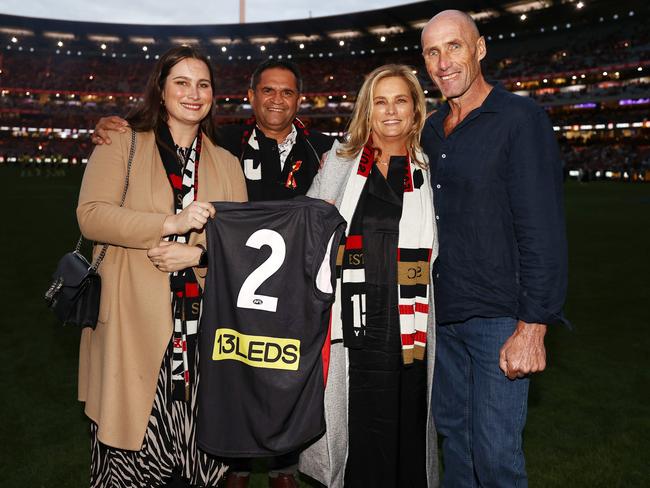
HM: You guys were always incredibly tight. Whenever I used to come around for barbecues, you could see the love. But I sense there’s been an extraordinary galvanising between you and your three girls.
AF: Absolutely, terrible trauma, sometimes that’s what it does. It can bring you together but it can tear people apart too. I know for the girls and I and their partners, I can’t talk highly enough of them, the boys as well. Gus and Luke have been so incredible, and Chelsea and Luke just got engaged so that just adds another element to our life and it’s also an element of sadness that Danny won’t be there on her wedding day.
HM: What’s been the most useful piece of advice for you to assist your grieving?
AF: To look 12 months ahead. For anyone that’s sitting in this situation, that’s just lost someone to suicide, just stop and breathe. If you can, meditate, walk, talk, do all those things, and look 12 months ahead and say to yourself, “I won’t be in this situation in 12 month’s time, I will be better somehow”. It’s all encompassing at the time, but I think that 12 months – and it might’ve been a little bit longer, I might have lied to myself, it might’ve been two years. Whatever the timeline is for you, it will get a little better.
HM: What would Danny be most proud of when he looked down now at you and the girls?
AF: What we’re trying to do at the Danny Frawley Centre. You know how passionately he spoke about mental health and mindfulness and meditation as he was trying to make a change. We’re trying to carry that legacy on for him.
HM: Are we getting better about talking openly around mental health, depression, anxiety?
AF: I think we are and I think that’s why you and I are having this tough conversation – if I can’t stand up and have this conversation then how can I expect others to. I think we are getting better, but there’s still a long way to go and I think for me, what I’ve kind of gauged over the journey is if someone does ask you, there’s still that worry then on what do you tell them? Where do you tell them to go and get help? There’s so many programs out there now that are fantastic, but I think it’s getting more awareness out there on how to help people.
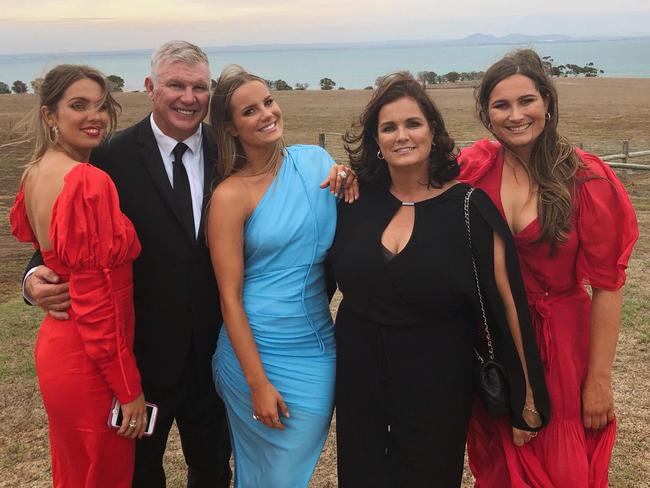
HM: So if someone says to you, my husband’s battling depression or my son, what are your immediate pieces of advice that are going to help?
AF: Talk. Make sure that they’re open and talking to you, keep an eye on them, ask them if they’re suicidal. I’m not a doctor or a psychiatrist, but just keep them speaking and try and get them into a program depending on their age. There’s Headspace, there’s Beyond Blue, there’s so many good programs out there, and to get to your GP, you can get a referral to get psychological help as well. So there’s lots of stuff out there now to help, but it’s trying to get people to understand the process and where to go, and the Danny Frawley Centre will help with that of course, because we’ll have that there.
HM: What has the Danny Frawley Centre been created to do?
AF: To deal with mental health issues, but it deals with the mental and the physical. Danny always felt that if you keep your physical fitness up and your strength, it helps with your mental health, which it definitely does because when it dropped off for him, it really dropped off. Last year there were 5000 youth who went through our programs on mental health. So there’s Safe Talk, which is suicide alertness, and Danielle takes those programs. There’s all these different programs that help deal with the issues that we’re talking about and next year we’ll start looking at bringing psychological help into the program as well.
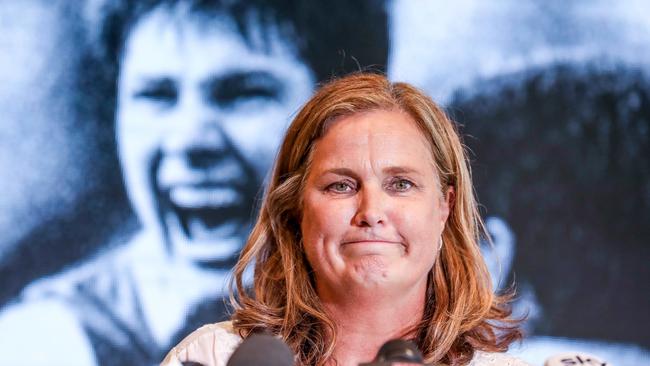
HM: I’ve got this written down Nites because I didn’t want to get the definition wrong. CTE: The term used to describe brain degeneration, likely caused by repeated head traumas.
AF: And it is still such an unknown. The US seems to be a lot further advanced than us, but we are getting there, and I think the awareness of the issue is getting there. But for the ones that have lived with someone with CTE and then had suicide, the Tucks, Paul Green …. it still gets me every time. And it’s not just the depression, you see the other signs.
HM: Like?
AF: I think I’ve told you, I stood in the kitchen and I said “This is not the man I married”. I couldn’t believe the changes. If we can get more awareness out there for people, that might lead to them getting tested. We can’t confirm it prior to death, but there’s signs and symptoms especially if they’ve been playing sport all their life.
HM: What would you like to happen?
AF: I’d like to see more brains donated, which is what the coroner wanted from Danny’s inquest. I’ve been working with Andrew Dillon and the boys at the AFL and I’m going to see the Coaches and the Players Association to try and work out how we can do that because we need the brains to do the research. The other thing is to keep a really strong eye on what our youth are doing with regards to tackling. It is getting much better. And keep up with what the US are coming out with, as well as the recovery from concussion. Err on the side of caution. If you give five weeks off for a hamstring, surely your brain’s got to be worth as much as a bit of hamstring if it’s a severe concussion? I still think they’re getting better, but there’s this, “Oh, we’re not really sure we want to delve too much.” We need open discussion. I just we need to work more with the Sports Brain Bank and the AFL and rugby and soccer and just be open about it because what are we scared of? We’re not gonna stop sport, we all love sport. We just have to be aware of the risks, and then minimise them.
HM: How do we make it safer?
AF: That’s the question. I’m not sure, but that’s what we all know we need to do.
HM: What have you learned about yourself over the last four years that you didn’t know?
AF: That I can survive. The major thing is that people can survive so much. You find a way to wake up and put your foot out the door and brush your hair, clean your teeth – just one foot after the other. Get up, deal with it, get up, deal with it, but knowing that one day down the track, it might be a little bit better.
HM: You’re a gem Nites. Thank you for doing this today.
AF: Only for you, Hamish. I’ve told you that. We go back a long way, love you.
HM: Love you too.
Anita Frawley’s episode of a new series called Let’s Talk comes out today on afl.com.au and aia.com.au/letstalk.

